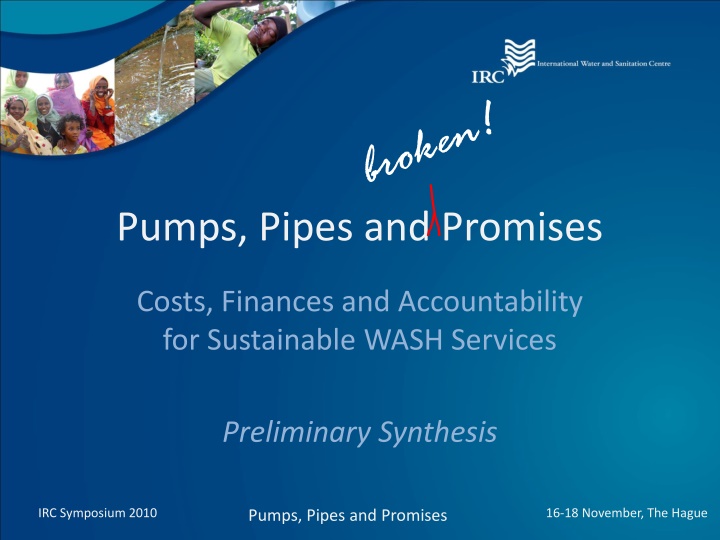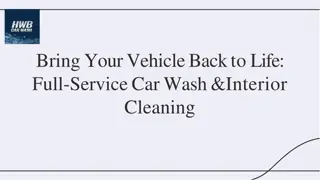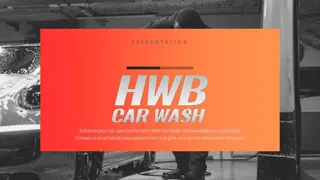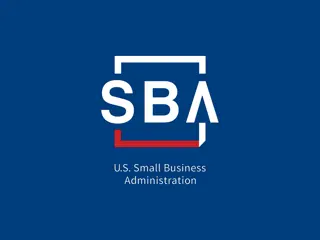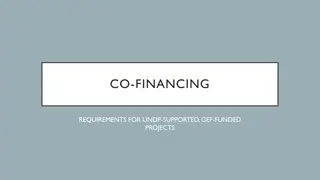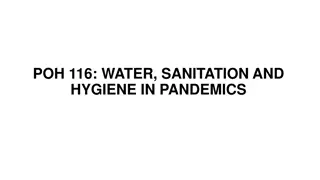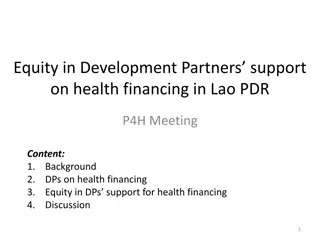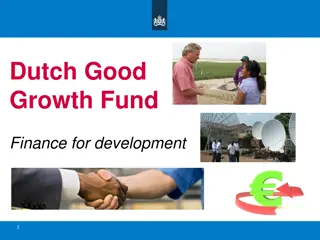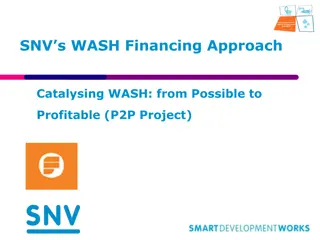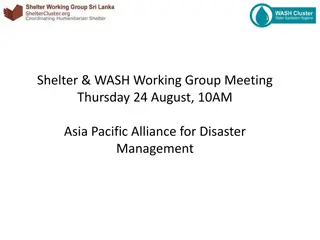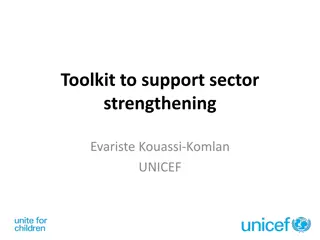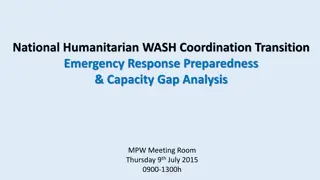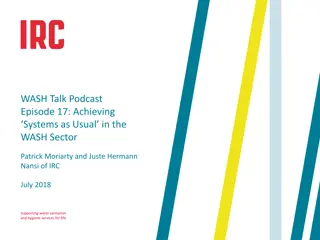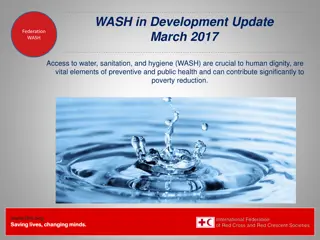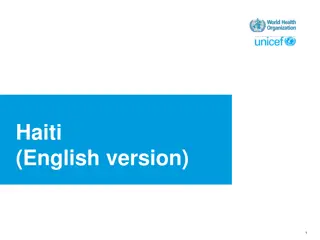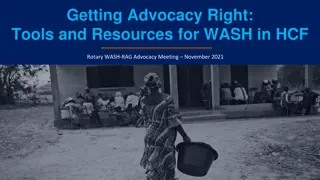Challenges in Financing Sustainable WASH Services
Addressing broken promises in water, sanitation, and hygiene services, this synthesis from the IRC Symposium 2010 emphasizes the importance of lifecycle costs, financing mechanisms, and accountability for sustainable service provision. It highlights the complexities of budgeting, the need for transparency to combat corruption, and the key role of public finance in less developed countries.
Download Presentation

Please find below an Image/Link to download the presentation.
The content on the website is provided AS IS for your information and personal use only. It may not be sold, licensed, or shared on other websites without obtaining consent from the author.If you encounter any issues during the download, it is possible that the publisher has removed the file from their server.
You are allowed to download the files provided on this website for personal or commercial use, subject to the condition that they are used lawfully. All files are the property of their respective owners.
The content on the website is provided AS IS for your information and personal use only. It may not be sold, licensed, or shared on other websites without obtaining consent from the author.
E N D
Presentation Transcript
Pumps, Pipes and Promises Costs, Finances and Accountability for Sustainable WASH Services Preliminary Synthesis IRC Symposium 2010 16-18 November, The Hague Pumps, Pipes and Promises
Broken promises . Broken promises about ... Water, Sanitation and Hygiene Services Not delivered Not sustainable Not equitable
Costs LCCA for service provision is the way forward Cost for service provided is as (more?) important than cost for technology Data is scattered and difficult to find (easiest for water, hardest for hygiene) Capital Maintenance and Direct Support Costs are the least understood (and most important!) Direct (technical) Support is very important and relatively expensive
Costs Totaling and annualizing per-capita costs is useful (essential?!) Totex?! Totex for basic rural water supplies seems to lie in the range 4-40US$/person/year probably realistically not less than 20US$/person/year And this still doesn t guarantee an acceptable service! Totex for Sanitation and Hygiene . ??
Finance Finance needs to take account of, and budget for, full lifecycle costs ALL finance comes from .... Taxes, Tariffs or Transfers The challenge is to decide which pays for what! Globally - public finance is key in LDCs aid is essential Services cannot be internally sustainable at the level of the system CapManEx cannot be internally financed alternative financing mechanisms are essential - Insurance? Mutualisation? Tax? Little agreement on: Who should finance, what, and at what institutional level (Local) Government? Users? Private sector (probably not!), Donors (not sustainable)
Accountability Agreement that accountability, transparency, integrity are all essential! Transparency (seems to) lead to improved services Corruption is everywhere! it is corrosive, expensive, destructive it must be tackled head on! Tools exist to tackle it with promising results Be proactive and be preventative corruption is about systems as much as (more than?!) morals Some solutions exist inside sector some are wider (democracy, accountability, rule of law etc.) Sector actors DO have a role to play Without transparency, and accountability to improved access to (cost) information is unlikely to lead to improved outcomes
Accountability The time to strengthen accountability etc. is at the start of institutional reform (e.g SWAp, decentralisation etc.) Where we (perhaps) need more work Understanding the relative importance and relationships between corruption, poor management, poor governance, lack of access to information etc.
Cross-cutting agreements Costs are important but not everything! Knowing the costs of different service levels and matching these with different financing streams is the first step to achieving sustainability But without good (enough) governance, good (enough) management progress will not happen Accessible information is essential to improved good service delivery and it goes beyond costs!
Monitor (and hold accountable) on the service provided not just the hardware built Cost effectiveness in the WASH sector may be best measured in terms of service delivered Transparency (freedom of information) is essential: of service levels to be delivered (and related costs and expectations) of financing
Sufficient financing Accountability Quality of service Availability of (cost) information Transparency
More work needed What ARE the models for financing post construction costs? How DO we finance CapManEx and Direct Support Costs What IS the magnitude of REQUIRED (normative) post-construction elements of cost? Which financing source should pay for what cost element? Who should pay for improved access to information?!
Decentralisation is a broad political process. The question(s) are HOW can decentralised WASH services be financed and made to work? Who does (and spends) what at what institutional levels fulfilling what functions? Where does accountability lie in decentralised service delivery who monitors who? These are questions that must be asked and answered by countries
Next steps? Answer all the above questions!! Communicate, communicate, communicate! Develop and document approaches AND tools for: Life cycle costing Monitoring costs and service delivery Accountability
